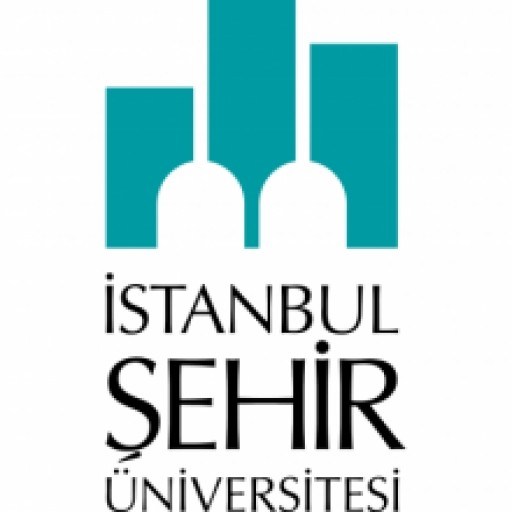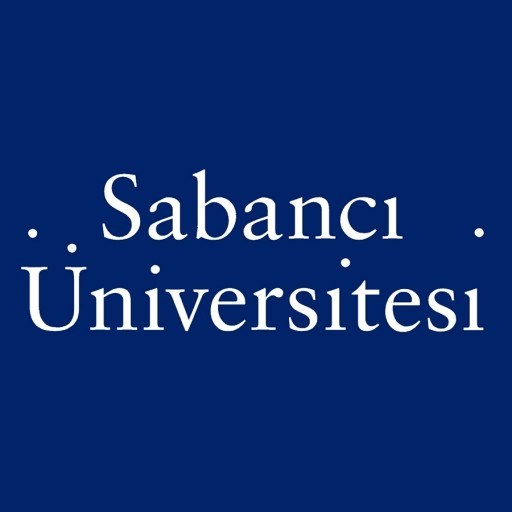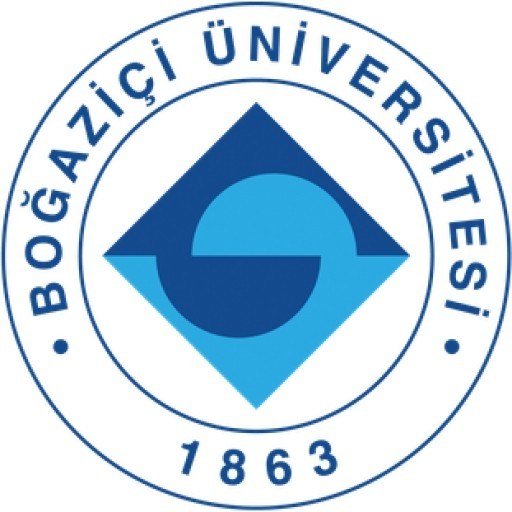Photos of university / #sehiruniversite
The Bachelor of Science in Electronics and Computer Engineering at Istanbul City University offers a comprehensive curriculum designed to prepare students for the dynamic fields of electronics, computer hardware, software development, and integrated systems. This program combines theoretical foundations with practical applications to equip graduates with the skills needed to innovate and excel in various technological industries. Throughout their studies, students delve into core areas such as digital and analog electronics, embedded systems, microprocessors, programming languages, circuit design, signal processing, and computer architecture. Emphasizing hands-on experience, the program includes laboratory work, project development, and teamwork exercises that foster problem-solving abilities and technical proficiency. The curriculum also covers advanced topics like robotics, automation, telecommunications, and cybersecurity, reflecting the latest trends and demands in the industry. Students have the opportunity to engage in research projects, internships, and collaborations with industry partners, enabling them to gain real-world insights and build professional networks. The program aims to develop not only technical expertise but also critical thinking, communication skills, and ethical awareness, preparing graduates to work effectively in multidisciplinary teams. Upon completion, graduates are well-equipped to pursue careers in hardware and software development, systems integration, telecommunications, automation, and research or to continue their education through graduate programs. Istanbul City University’s modern facilities, experienced faculty, and emphasis on innovation ensure that students receive a high-quality education aligned with global standards, fostering future leaders in electronics and computer engineering.
Electronics and Computer Engineering (ECE) program at Istanbul City University offers a comprehensive curriculum designed to prepare students for dynamic careers in technology and innovation. The program combines fundamental principles of electrical and electronics engineering with advanced knowledge in computer engineering, enabling graduates to develop innovative solutions across various industries such as telecommunications, robotics, embedded systems, and information technology. Throughout their studies, students explore core subjects including circuit theory, digital systems, signal processing, microprocessors, control systems, and computer programming, positioning themselves at the forefront of technological advancements. The program emphasizes practical learning through laboratory work, project-based assignments, and industry collaborations, providing students with hands-on experience in designing, analyzing, and implementing complex electronic and software systems. Moreover, students have the opportunity to participate in research projects and internships, fostering skills in problem-solving, teamwork, and communication, which are essential in today’s competitive job market. The curriculum also incorporates emerging topics like Internet of Things (IoT), cybersecurity, artificial intelligence, and machine learning, ensuring that graduates are equipped with up-to-date knowledge and skills. The faculty comprises experienced academicians and industry professionals committed to delivering quality education and guiding students towards academic excellence and professional development. Istanbul City University’s ECE program aims to produce competent engineers capable of contributing to technological innovation and economic growth. Graduates of the program find diverse employment opportunities in sectors such as electronics manufacturing, software development, telecommunications, automation, and research & development. The program’s design complies with international standards, facilitating opportunities for further education and collaboration globally. By fostering an innovative learning environment, Istanbul City University’s Electronics and Computer Engineering program prepares students not only to meet current industry demands but also to become leaders and pioneers in the evolving world of technology.
The Electronics and Computer Engineering (ECE) undergraduate program at Istanbul City University requires applicants to have completed a high school education with a strong emphasis on mathematics and science courses. Prospective students must submit their high school diploma along with transcripts demonstrating their academic performance. English proficiency is also a requirement; therefore, applicants must provide proof of English language proficiency through tests such as TOEFL or IELTS, unless their previous education was conducted in English. The program particularly values applicants who show a solid foundation in Mathematics, Physics, and Computer Science, as these are fundamental to the coursework.
Admission is competitive and considers overall academic achievement, motivation, and relevant extracurricular activities related to engineering and technology. The application process usually involves submitting an online application form, completing relevant documentation, and attending an interview or entrance examination if required. International students are welcomed and must meet additional visa and immigration requirements dictated by Turkish government regulations.
Once admitted, students are required to complete a minimum number of credit hours, which include core courses like Circuit Theory, Digital Systems, Programming, Data Structures, Signal Processing, Control Systems, and Embedded Systems. The curriculum is designed to provide a comprehensive understanding of electrical and electronic systems, computer hardware and software, and their integration. Students also participate in laboratory work, projects, and practical training to develop hands-on skills and real-world problem-solving capabilities.
The program has a balanced coursework structure that encourages innovation and research, with opportunities for students to involve in projects and internships related to industry needs. Faculty members are engaged in ongoing research in areas such as telecommunications, automation, microelectronics, and computer engineering, providing a strong academic environment for students. To graduate, students need to successfully complete all coursework, pass final exams, complete a graduation project, and fulfill any internship requirements as stipulated by the university.
Graduates of the ECE program are prepared for careers in various sectors including telecommunications, automation, microelectronics, software development, and embedded systems. They are also equipped with the necessary skills to pursue postgraduate studies or engage in research and development activities within the industry or academia. The program aims to produce highly competent engineering professionals who are capable of contributing to technological advancements and addressing contemporary engineering challenges in a global context.
The Electronics and Computer Engineering (ECE) program at Istanbul City University offers a comprehensive and flexible financing structure to support students throughout their academic journey. The university provides various scholarship opportunities designed to assist high-achieving students, including merit-based scholarships that reward academic excellence from the beginning of their studies. These scholarships can cover partial or full tuition fees, substantially reducing the financial burden on students and enabling them to focus on their education and research activities.
In addition to merit-based scholarships, the university offers need-based financial aid for students demonstrating financial hardship, ensuring that talented individuals from diverse backgrounds have access to quality engineering education. The application process for these supports typically involves submitting financial documentation and, in some cases, academic records, which are evaluated carefully to determine eligibility.
Istanbul City University also partners with various governmental and private organizations to provide external sponsorships and funding opportunities. These partnerships include industry-sponsored scholarships aimed at fostering future engineers who can contribute to the rapidly evolving fields of electronics and computer engineering. Such sponsorships often require students to fulfill specific criteria, such as internships or research participation within the sponsoring organizations.
Payment plans are available, allowing students to tailor their tuition fee payments across semesters to ease financial management. The university's financial services department provides counseling to help students explore all available financing options and guide them through the application procedures. The institution continuously reviews and updates its scholarship and financial aid policies to ensure they align with students' needs and the evolving educational landscape.
Moreover, students are encouraged to seek external funding sources, including national and international scholarships offered by governmental agencies, non-governmental organizations, and charitable foundations dedicated to supporting engineering students. Information about these opportunities is regularly disseminated through university channels and dedicated financial aid offices.
Overall, Istanbul City University is committed to making electronics and computer engineering education accessible and affordable, fostering a diverse community of future engineers. The university’s multi-faceted financing studies aim to minimize economic barriers and promote academic success and research excellence in the field of electronics and computer engineering.
Electronics and Computer Engineering (ECE) at Istanbul City University offers a comprehensive undergraduate education designed to prepare students for the rapidly evolving fields of electronics, embedded systems, telecommunications, automation, and computer engineering. The program combines theoretical fundamentals with practical applications, equipping students with a robust understanding of electronic circuits, digital systems, software development, and hardware integration. The curriculum includes courses such as digital logic design, electronics, microprocessors, programming languages, control systems, signal processing, and computer architecture. Students also gain practical skills through laboratories, projects, and internships, fostering hands-on experience essential for modern engineering challenges.
The program emphasizes both hardware and software aspects of electronics and computer engineering, ensuring graduates are versatile and capable of contributing to various sectors like telecommunications, automation, robotics, and information technology. The faculty comprises experienced academics and industry professionals who deliver up-to-date knowledge aligned with current technological trends. Istanbul City University encourages a dynamic academic environment, promoting innovation, research, and professional development.
Students benefit from modern laboratories equipped with state-of-the-art tools and technologies, supporting experimental work and project development. The curriculum also offers elective courses and opportunities for specialization in areas such as embedded systems, signal processing, or networking, allowing students to tailor their education to their interests and career goals. The program actively collaborates with industry partners, providing students with internship opportunities and industry projects that enhance employability and real-world problem-solving skills.
Graduates of the ECE program are well-prepared for careers in various engineering sectors or for further academic pursuits. They can work as electronics engineers, software developers, network engineers, automation specialists, or pursue postgraduate studies. The university’s strong ties with industry and emphasis on research ensure that students stay connected with the latest technological developments and market needs. Overall, Istanbul City University’s Electronics and Computer Engineering program aims to produce competent, innovative, and adaptable engineers ready to meet global technological challenges and contribute to national development.





